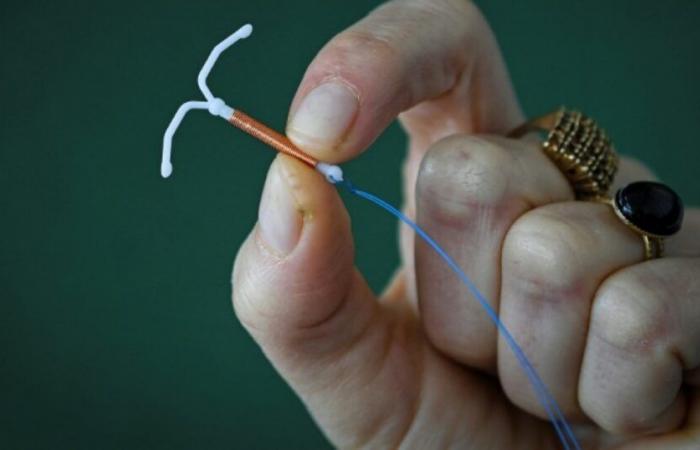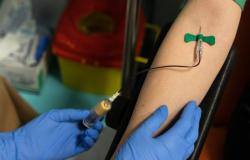“I had mood swings, chest pains, a complete loss of libido… It really had an impact on my relationship and my daily life.” Like many young women, Manon, 24, has given up the pill.
Fifty years after the law on its reimbursement by Social Security, carried by the new Minister of Health Simone Veil, oral contraception is no longer so popular: the intrauterine device (or IUD) is now at the top of the methods of contraception used among women aged 18 to 49, according to the “Context of sexualities in France” survey, conducted by Inserm and published in mid-November.
In 2005, more than half of women used the contraceptive pill. In 2023, they were only 26.8%, according to this study.
“We have observed a growing disaffection towards the pill since the beginning of the 2000s, which intensified after the media crisis around 3rd and 4th generation pills in 2012,” underlines Isabelle Derrendinger, president of the National Council of the Order of midwives. That year, a woman left disabled after a stroke filed a complaint against the manufacturer of a 3rd generation pill – the open file was closed without further action in 2017.
Among the reasons motivating this change: nausea, migraines, weight gain, loss of libido, but above all mental load.
“It was really heavy mentally. I forgot it quite often and I woke up in a panic in the middle of the night wondering if I had taken it well,” says Manon.
And even though contraception is free for women under 26, not all pills are reimbursed. This was the case for Manon, who paid more than 40 euros every three months.
More and more women also want to avoid taking hormones, “whether for themselves or for the environment,” explains Isabelle Derrendinger.
“I felt like a chicken,” summarizes Marion, now 31 years old. After five years on the pill, at age 20 she decided to switch to a copper IUD. “I wasn't really comfortable with the idea of taking hormones, I wanted to go back to a more natural cycle.”
– Vasectomy appeals to men –
Among young people (18-29 years old), even if the pill remains the most used method of contraception, its use has fallen by 17.7 points in seven years (from 54.3% in 2016 to 36.6% in 2023). At the same time, the use of the IUD – copper or hormonal – increased by 8 points to concern 19.3% of young women in 2023, according to the Inserm study.
“Previously, the vast majority of women who used the IUD had already had one or two children. Now, these are patients who are generally in their twenties, who have tried the pill, but who want something less restrictive,” describes Geoffroy Robin, gynecologist at Lille University Hospital.
According to him, the democratization of the IUD is linked to an improvement in information on contraceptive methods but also to a change in the mentalities of gynecologists, who could refuse to insert an IUD in a woman who had not had a child. , “even if it has never been a contraindication”.
The copper IUD can still be quite stressful, both during insertion and during the cycle, and is often not recommended for women who have painful and/or heavy periods.
Pill or IUD, the burden of contraception still rests largely on women, but some men still try to take part. Condom, heated briefs, contraceptive ring: the options still remain limited.
But for those who want permanent contraception, vasectomy is attractive. “It is a method very popular with men over 30-35 years old. In less than ten years, requests have increased by 450%,” underlines Geoffroy Robin, also an andrologist.
Olivier was on the operating table at 40 years old. A decision taken after the birth of her third child. “Personally, I was sure I no longer wanted it, but I also did it for my wife,” he confides, reporting that she had never found a method that suited her, after having tested the pill, implant and IUD.
“It was still relatively little known in France,” he says, “but I realized that it was very widespread in English-speaking countries. For us, it’s really the ideal solution.”






